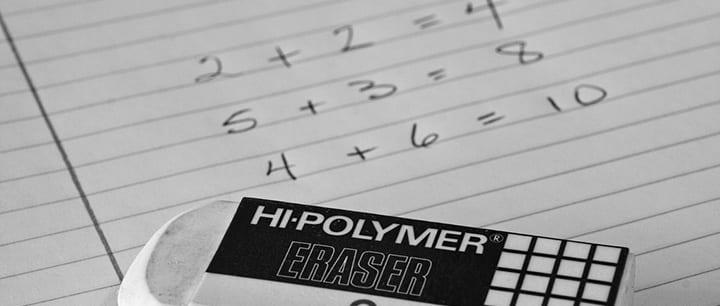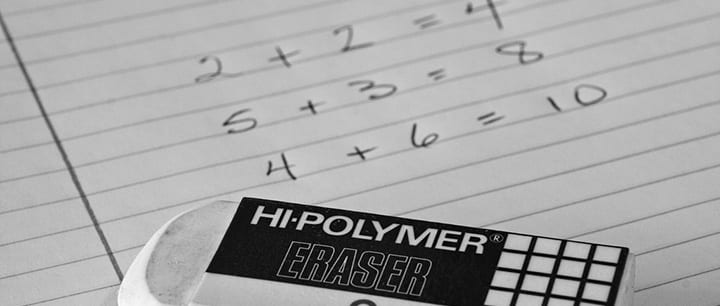Math doesn’t have to be boring! Take a look at these ideas to have fun and encourage learning with your kids, from Dallas, TX tutor Kristin S.:
Are you looking for ways to get your kids excited about math? Incorporating it into familiar surroundings and activities can make it naturally enjoyable! Try these five fun addition games to give your youngster the gifts of practice and play.
- Count ’em Cars
This is a 2-player game that’s great for summer road trips! To start, each player selects 3 different colors. The first person to identify 10 cars with their chosen colors wins (30 cars total at 1 point per car). Identify cars by calling out the color, and remembering scores mentally. For older children, assign different point values to each color (e.g., 2, 4, and 6 points; or 5, 10, and 15 points), and make the final winning scores higher (e.g., 30 or 100 points). In either version, players keep a running total of points until one person reaches the winning score. Cumulative mental addition can improve a child’s information processing speed, focus/attention, and memory.
- Book Math
This fun addition game works well with young children (ages 4-7). Grab a few books that are full of pictures. Ask your child to count specific objects in each book (e.g. “How many monkeys are there?”), and write the number on a piece of paper. Add a plus sign between numbers, and have them add the total number of objects per book. Use counting to help them add, if needed.
- Musical Math Multiples
Turn on your favorite, fun music, choosing songs with a medium to fast beat. For young children (ages 4-7), start with 1 and add 1 or 2 on every other beat, once the singing begins. They can keep the beat mentally or clap. Stop at 20, then move to a faster song to increase the challenge and fun! Older children can pick a number between 3 and 9, and repeatedly add it to itself to learn single digit multiples. Once the singing begins, add on every other beat up to 50. This game is a great cognitive skill builder. Mentally calculating while moving, keeping the beat, and listening to music increases the brain’s capacity for focus/attention and faster information processing.
- Circle of Time
This is especially well-suited to children learning time concepts. Choose an adult timekeeper and have everyone circle up. Each player draws 3 slips of paper containing the name of an object or place (e.g., movie, book, store, etc.). The timekeeper picks a random starting time (e.g., 3p.m.). Player one begins a story about him or herself, naming an activity related to one slip of paper. For example, “I took a basketball (drawn word) to the park and practiced free throws for 20 minutes.” The story continues to the left, with the first player as the star. Player two might say, “It was really hot out, so when he finished he jumped in the lake and swam for an hour and a half.” Turn 3 could be, “All of a sudden, a galloping horse ran into the lake and splashed around for 18 minutes.” Keep turns short and fast, to increase the challenge. Continue the story three times around the circle. When finished, each player writes the time they believe the story ends (e.g., 11:32p.m.). The time keeper announces the correct ending time, and all winners keep their slips of paper. Player two is now the star. After everyone is a star, the player with the most slips wins!
- Fast Flip
Use one deck of cards per player. Shout “Go!”, and each player grabs one topcard after another from his or her deck. Add cards to keep a running total. Aces are worth 11 points, face cards are worth 10, and number cards are worth their own value (a “four” is worth 4 points, etc.). When 20 or more points are reached, a player lays all cards down and begins drawing again. The first to reach 100 points and shout “I’m the king of math!” wins the round. After 5 wins (500 points), the king is the ultimate winner and the other players must shout, “All hail, the king of math!”
Help your child cultivate a love for math by using the five fun addition games above, or make up your own! Whatever their age or level, these games will build your child’s cognitive skills and help them excel in math.
 Kristin S. provides tutoring in a variety of subjects in Dallas, TX. Her tutoring experience includes Geometry, Pre-Algebra, elementary Math, English, Spelling, Reading, and Reading Comprehension, and she has experience working with children with Attention Deficit Disorder and behavioral disorders. Learn more about Kristin here!
Kristin S. provides tutoring in a variety of subjects in Dallas, TX. Her tutoring experience includes Geometry, Pre-Algebra, elementary Math, English, Spelling, Reading, and Reading Comprehension, and she has experience working with children with Attention Deficit Disorder and behavioral disorders. Learn more about Kristin here!
 Photo by GenBug
Photo by GenBug
Suzy S.

